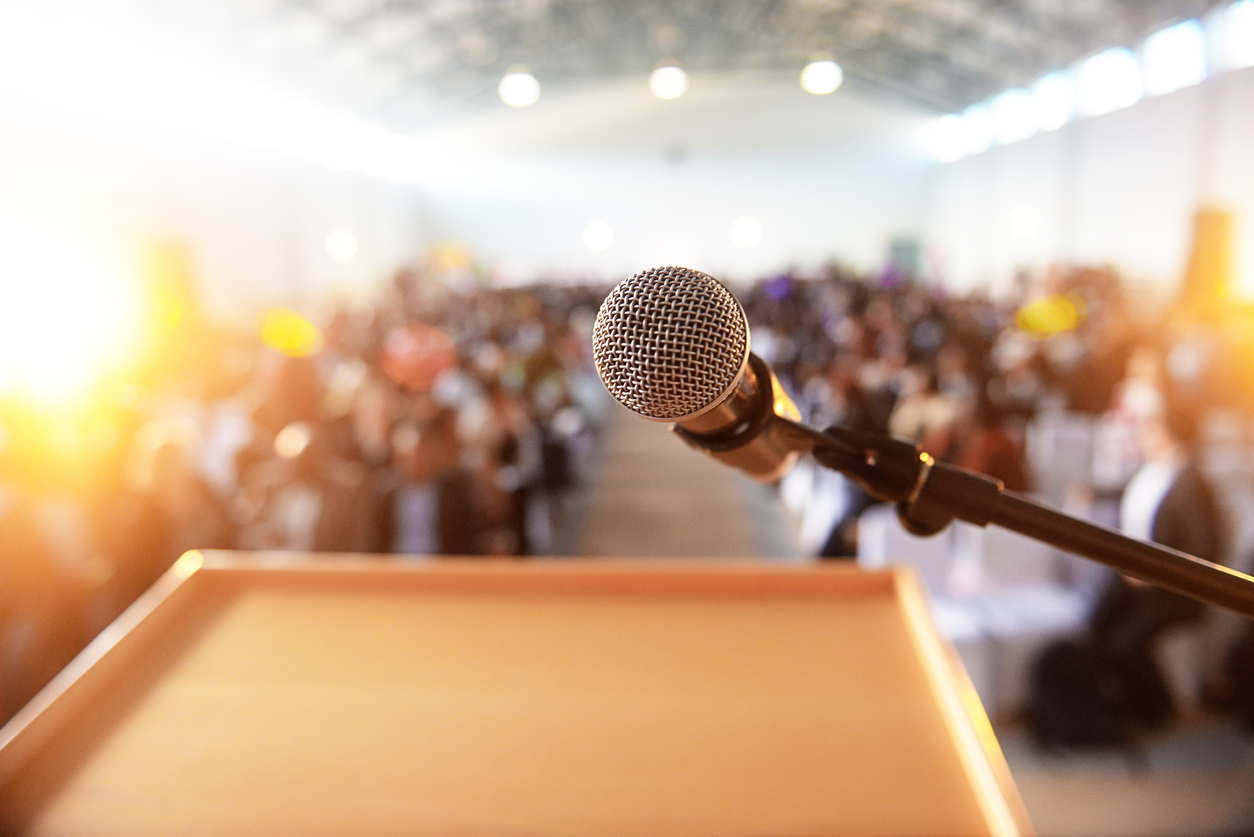The majority of us have some sort of routine or ritual that we stick to. Whether it’s getting up at a certain time, exercising, adhering to superstition, or even something as simple as making the bed each morning, these habits – big and small – help to instil a sense of confidence, accomplishment or even luck before we start our day.
In the case of public speaking, something that has the potential to be a nerve-wracking experience for many, rituals most definitely have a role to play. For those who have struggled with public speaking in the past, we’ll take a look at some effective rituals you can use to improve your presenting ability in front of an audience.
Public speaking for beginners
If you’ve never done it before, or you have limited experience with it, then the idea of public speaking can seem daunting. How exactly are those who are skilled in the practice capable of standing in front of strangers and have them hang on every word?
The good news is you’re not alone. Many people find it to be a nerve-wracking experience. And for the most part, skilled public speakers didn’t just become good at what they do overnight. It took time to develop their abilities to get to where they are now – which means it’s a skill that can be learned just like any other.
Confidence in public speaking: why it’s important
Having confidence in your ability to speak in front of an audience doesn’t just benefit yourself, it benefits your audience in a host of different ways too. Here’s why confidence is important in public speaking:
- It allows you to focus on them, rather than if you’ll make mistakes. Tuning into your audience means addressing their needs and issues – and offering solutions to help them solve them
- It allows for a calmer, clearer approach to conveying messages, which helps the audience to better understand what you’re saying
- Confidence breeds charisma, a trait that has the power to captivate audiences. On the other hand, nervous speakers tend to make audiences tune out
- It builds trust and transparency within the audience. If you’re selling a product or service, then an audience will be more inclined to check out these offerings after the presentation is over
Public speaking tips: common rituals to do before the big day
Whether it’s in person or it’s a remote presentation, give these pre-speech rituals and tips a try and approach the event with a greater sense of calm and confidence.
- Do some deep breathing
When we’re stressed, our breathing becomes shallow and quick. To remedy this, do the opposite: make your breathing deep and low. Place your hands around your belly; breathing in should push your hands outwards, while breathing out makes your hands move back and inwards.
You’re now doing deep breathing, and practicing it has been shown to reduce the release of cortisol – better known as the “stress hormone” – and increases the feel-good chemical endorphins instead.
- Warm up your voice
From singers and actors to radio and TV broadcasters, anyone who uses their voice for a living warms up their voice and vocal cords. Public speakers should limber up in the same way so they can loosen up any tension they’re experiencing. Humming or holding vowel sounds like “ahhhh” (for as long as you can) have been shown to work, while slowly massaging the jaw and cheek muscles while making a “mamamama” sound is an effective warmup method too.
- Practice the first 60 seconds
Another vocal warmup of sorts, practicing the first 60 seconds of your presentation or pitch has some great benefits. Not only does it get you used to the shapes of words and what they sound like coming from your mouth, but it lets your talk start on a strong foundation which you can continue building on as things progress.
- Focus on the audience’s benefits
Like we said earlier, it’s easy to focus on your own performance or worry about how you might make mistakes. Instead of doing this, approach things from the perspective of how your speech is going to help your audience. What is the value of your message? How will it benefit them afterwards.
This way of thinking gives you “targets” to hit during the presentation, helping to ground the act of speaking in reason and logic, rather than the mistakes you probably won’t even make.
- Exert yourself
Much like deep breathing, exerting yourself decreases the levels of stress hormones in your body. So if you’d prefer to do something active, then a quick workout, some jumping jacks or going for a brisk walk can help to keep the nerves at bay and amp you up ahead of your speech.
- Repeat a mantra
If you’re the kind of person who’s comforted by words, and don’t fancy getting a sweat on before your presentation, then repeated self-talk or mantras are a great way to soothe yourself and feel more empowered.
To find out more about careers at SEFE Marketing & Trading please visit our homepage.
The views, opinions and positions expressed within this article are those of our third-party content providers alone and do not represent those of SEFE Marketing & Trading. The accuracy, completeness and validity of any statements made within this article are not guaranteed. SEFE Marketing & Trading accepts no liability for any errors, omissions or representations.









